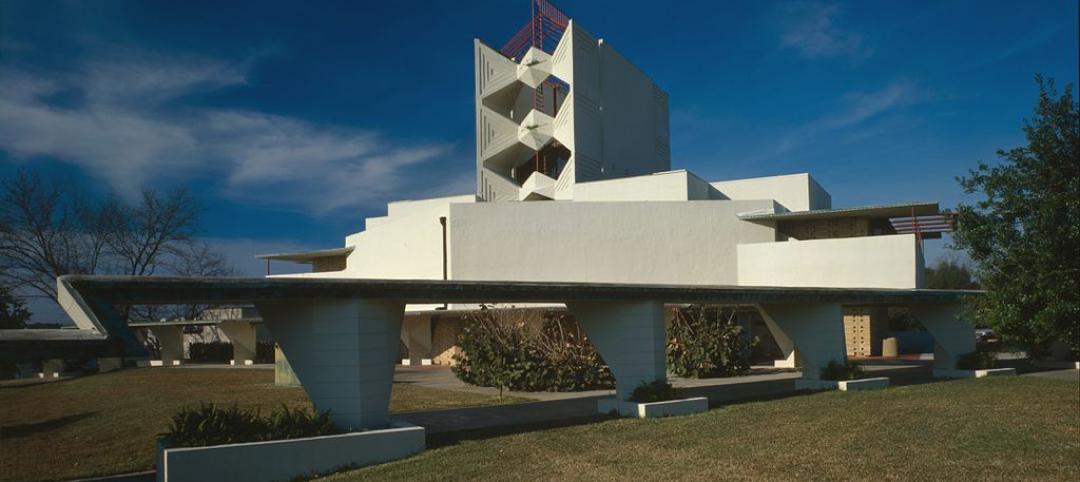The architecture programs at Parsons The New School for Design and Clemson University have been selected as 2014 NCARB Award recipients for developing innovative curricula that merge practice and education.
The National Council of Architectural Registration Boards (NCARB) announced the recipients at the Association of Collegiate Schools of Architecture (ACSA) Administrators Conference.
The NCARB Award supports initiatives at architectural schools that will have a long-term impact on students, faculty, and curriculum. It is designed to help schools implement new programs that bridge the gap between practice and education in a classroom, seminar, or studio setting.
“The award honors innovative ways for weaving practice and academy together to address real-world architecture challenges,” said NCARB CEO Michael J. Armstrong. “The winning proposals for 2014 explore new paradigms of practice and move students from the theoretical to applied practices working with licensed practitioners.”
2014 NCARB Award Recipients
Program: Clemson University, School of Architecture—Clemson, S.C.
Proposal: “Graduate Program in Architecture + Health”
Total Award: $30,000
The mission of the project is to advance health care facility design through collaboration among architects, academia and members of the healthcare industry. The primary outcome will be to expose a cohort of architecture and health (A+H) Master of Architecture students—through three integrated courses within the A+H Curriculum—to the challenges of designing health care settings that support the delivery of high quality, cost effective, culturally relevant health care for medically under-served populations.
“This project’s social capacity is far-reaching,” said Wendy Ornelas, FAIA, associate dean and professor at Kansas State University’s College of Architecture, Planning & Design, and the chair of the 2014 NCARB Award Jury. “It creates a road map for healthcare but is also a framework that is portable across all project types."
Program: Parsons The New School for Design, School of Constructed Environments—New York
Proposal: “Student-Practitioner Partnerships in Building Performance Evaluation”
Total Award: $20,232
While there is increased emphasis on sustainability, instruction on performance measurement is lacking. The proposal addresses a new and critical opportunity for architecture students to improve the environmental performance of buildings through measurement. The project involves purchasing new tools to enable students, during seven-week assignments, to work with practitioners to evaluate the real-world energy performance of buildings. Equipment purchased with the Award includes environmental meters for the measurement of temperature, humidity, air velocity, light level, sound pressure, carbon dioxide, carbon monoxide, and other performance factors.
“Many of the buildings are LEED or net-zero buildings, and this program will provide us with a cadre of information and data on whether or not these buildings are doing what they are supposed to be doing,” Ornelas said.
The 2014 NCARB Award Jury rigorously and impartially evaluated proposals against a published set of criteria. The jury comprised architects and emerging professionals who volunteered extensive time and expertise to fulfill their charge. Led by Wendy Ornelas, FAIA, Manhattan, KS, chair of the 2013 NCARB Award Jury, members included: Michael Archer, Assoc. AIA, Brooklyn, NY; Leticia Canon, AIA, MBA, NCARB, LEED AP BD+C, Dallas, TX; John Ehrig, FAIA, LEED AP, Orlando, FL; Linaea Floden, LEED AP BD+C, Tampa, FL; Emily Forquer, NCARB, Afton, IA; and Stephen Schreiber, FAIA, Amherst, MA. (Award Jury members with any connection or potential conflict of interest abstained from voting on that school’s proposal.)
Since 2001, the Council has supported the integration of practice and education by awarding more than $900,000 to schools through the NCARB Prize (2001-2011) and the NCARB Award (2006-present; known as the NCARB Grant until 2012). These funds have reached 60 schools—representing more than a third of all NAAB-accredited degree programs.
Related Stories
| Sep 10, 2014
Must See: Shape-shifting architecture that responds to heat
Students in Barcelona have created a composite material using shape memory polymers that can deform and return to their original state when activated by cues like heat, humidity, and light.
| Sep 10, 2014
Lessons for the shore: Bolstering resilience of the built environment
Nearly 32 million people, or 28% of the East Coast's population, live in areas lying within a mile of a shore line. The good news is that municipalities are starting to take action, writes Sasaki Associates.
| Sep 9, 2014
Using Facebook to transform workplace design
As part of our ongoing studies of how building design influences human behavior in today’s social media-driven world, HOK’s workplace strategists had an idea: Leverage the power of social media to collect data about how people feel about their workplaces and the type of spaces they need to succeed.
| Sep 9, 2014
Ranked: Top religious sector AEC firms [2014 Giants 300 Report]
Brasfield & Gorrie, Gensler, and Jacobs top BD+C's rankings of the nation's largest religious sector design and construction firms, as reported in the 2014 Giants 300 Report.
| Sep 9, 2014
Take a look at the hardhat of the future
A Los Angeles-based startup added augmented reality technology to a hardhat, creating a smart helmet.
| Sep 9, 2014
Frank Lloyd Wright's Annie Pfeiffer Chapel brought back to life using 3D printing
Restoration of the Frank Lloyd Wright-designed chapel was made possible (and affordable) thanks to 3D printing.
| Sep 8, 2014
First Look: Foster + Partners, Fernando Romero win competition for Mexico City's newest international airport
Designed to be the world’s most sustainable airport, the plan uses a single, compact terminal scheme in lieu of a cluster of buildings, offering shorter walking distances and fewer level changes, and eliminating the need for trains and tunnels.
| Sep 8, 2014
Trimble acquires Gehry Technologies, aims to create tools for linking office and job site
Trimble and Frank Gehry announced that they have entered into a strategic alliance to collaborate to transform the construction industry by further connecting the office to on-site construction technologies. As part of the alliance, Trimble has acquired Gehry Technologies.
| Sep 7, 2014
Ranked: Top state government sector AEC firms [2014 Giants 300 Report]
PCL Construction, Stantec, and AECOM head BD+C's rankings of the nation's largest state government design and construction firms, as reported in the 2014 Giants 300 Report.
| Sep 7, 2014
Hybrid healthcare: Revamping inefficient inpatient units to revenue-producing outpatient care
It's happening at community hospitals all over America: leadership teams are looking for ways to maintain margins by managing underutilized and non-revenue producing space. GS&P's David Magner explores nontraditional healthcare models.
















